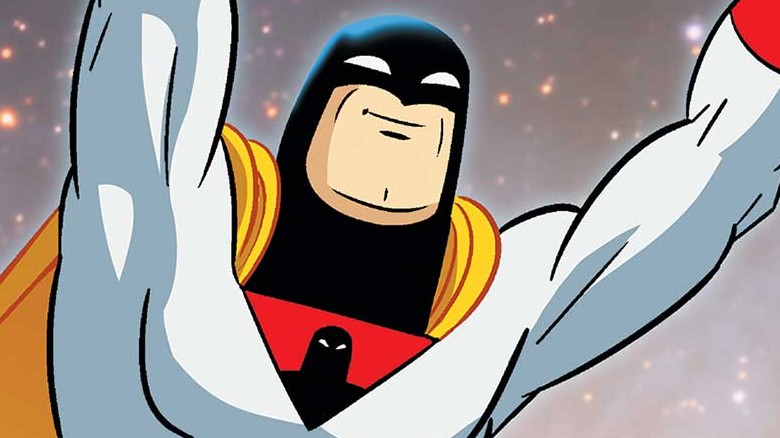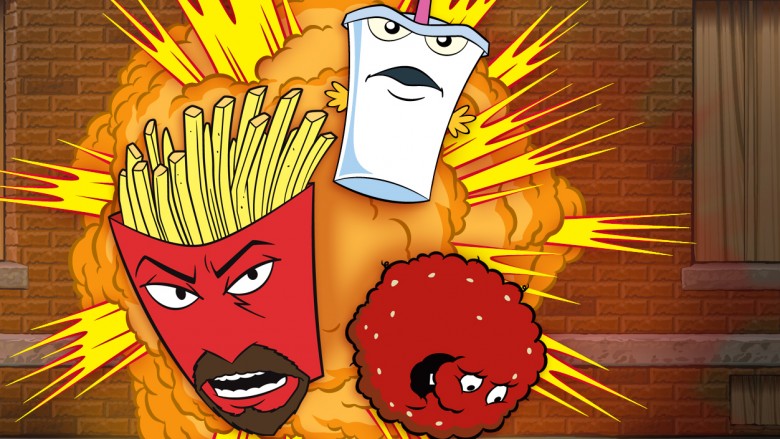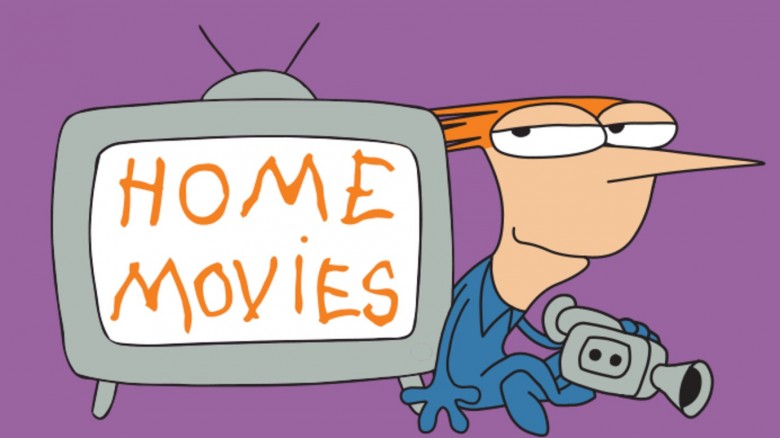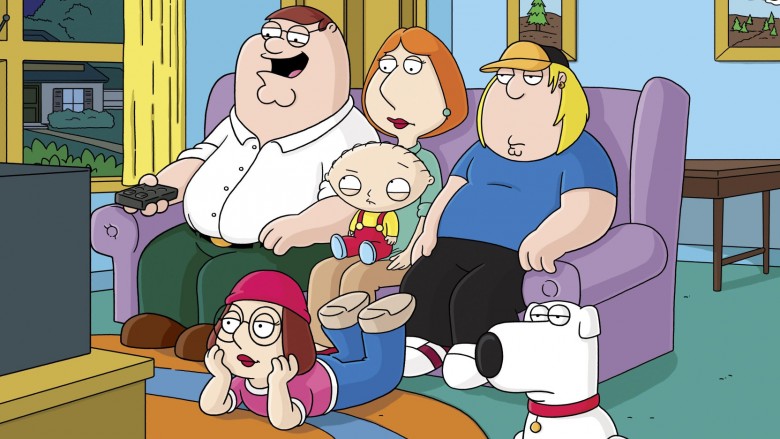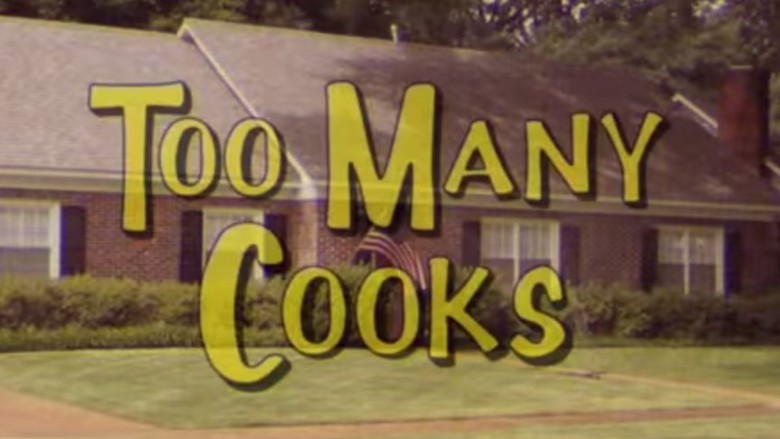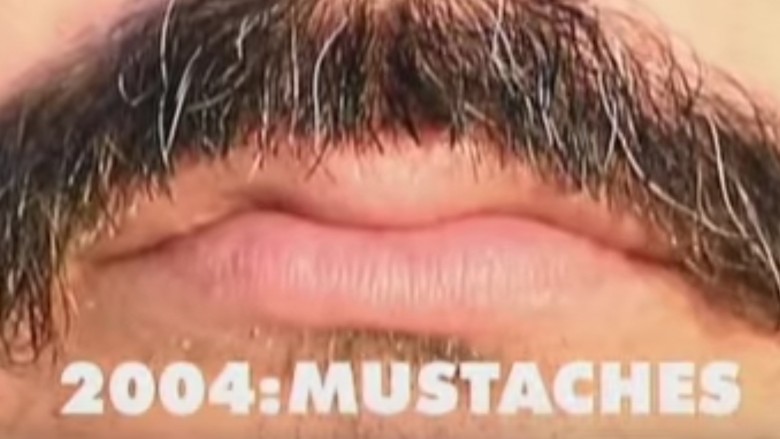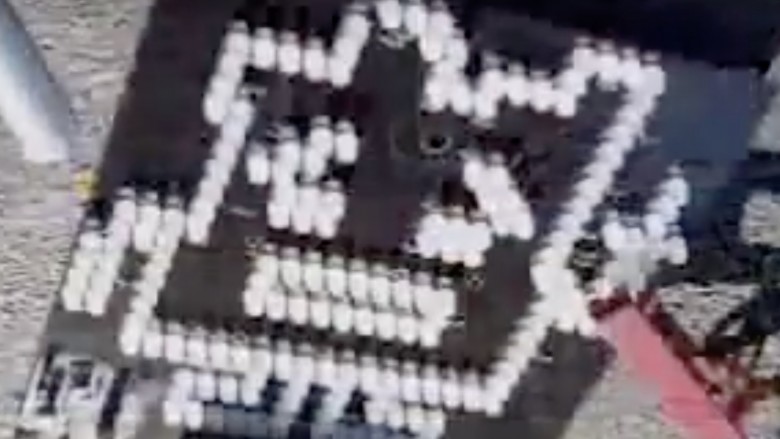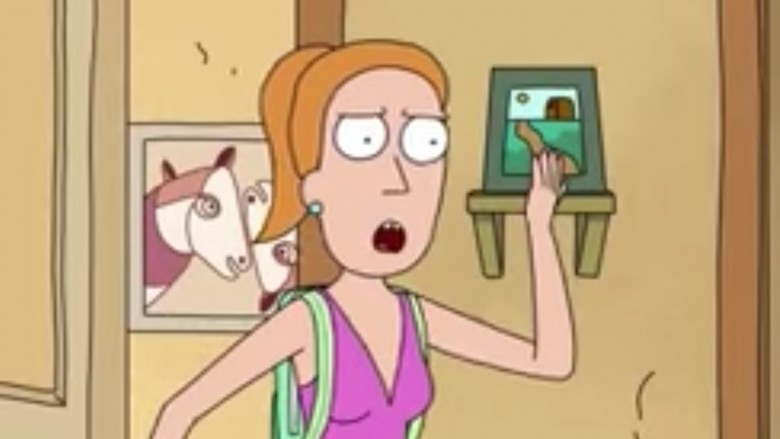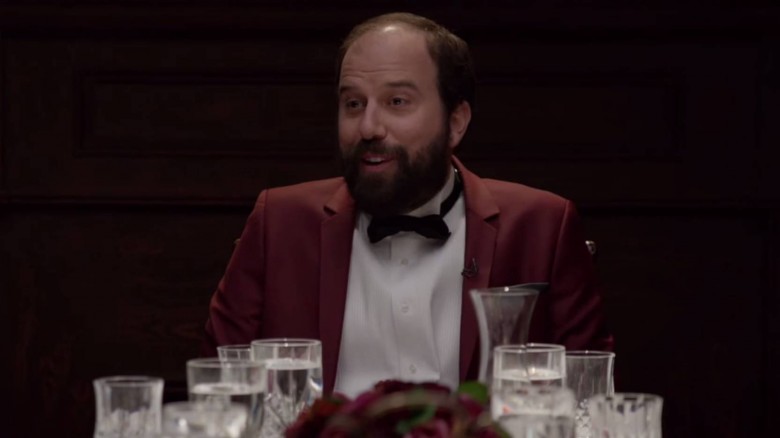The Untold Truth Of Adult Swim
Since 2001, Adult Swim has exposed viewers to dozens of silly, anarchic, and innovative comedies—both animated and live-action. The network has been the home of Aqua Teen Hunger Force, The Venture Brothers, Metalocalypse, Rick & Morty, Robot Chicken, The Boondocks, Loiter Squad, Children's Hospital, SuperJail!, Frankenhole, Check It Out, Moral Orel, The Eric Andre Show, Perfect Hair Forever, Tim and Eric Awesome Show, Great Job! and tons more truly outstanding and unpredictable post-modern entertainment. (Not to mention thousands of clever white text-on-black ink bumpers between everything.) Here's a look behind the scenes of the network's rise to prominence.
Adult Swim before it was Adult Swim
Until 1994, Cartoon Network was a dumping ground for old cartoons whose rights were controlled by parent company Turner Broadcasting, which at the time was run by media tycoon Ted Turner. The channel started experimenting with late-night programming in an attempt to see if teenagers or young adults would tune in after hours (and for something besides old episodes of The Flintstones). That led to Cartoon Network's first-ever original series, Space Ghost Coast to Coast. Created by programmer and executive Mike Lazzo (who also developed Cartoon Network's previous programming block, Toonami), the unique series was a talk show hosted by forgotten C-list '60s TV superhero Space Ghost—in cartoon form—interviewing real celebrities on a tiny monitor. (Along with cohost Zorak, a villain from the old show, whom Space Ghost often zaps with his power bands.) It was filled with the kind of surreal, random, and sometimes off-putting humor that would inform the tone of all Adult Swim content.
How Adult Swim actually started
That late-night foray was successful enough that in 2000, Cartoon Network bosses decided to put together a full-fledged programming block. To create Coast to Coast, Turner had created a subsidiary called Ghost Planet Industries, which later became William Street Studios, so named for the street in Atlanta upon which it was initially founded. Through that production house, Cartoon Network started airing, without promotion or designation, late-night broadcasts of original, weird, adult-focused series such as Aqua Teen Hunger Force, Sealab 2021, and Harvey Birdman, Attorney at Law. The last two were a lot like Coast to Coast, in that creators took old, obscure cartoons Turner owned and reconfigured them into new shows. Such "stealth" broadcasts continued on Cartoon Network at night until September 2, 2001, when Adult Swim made its debut as a Sunday night programming block. (The same block was then repeated the following Thursday.)
It is and isn't its own network
While it's essentially Cartoon Network At Nite, a la Nick At Nite, the company that measures TV ratings considers Adult Swim a completely separate television channel from Cartoon Network. This means as far as Nielsen Research Media is concerned, Cartoon Network is one thing, and Adult Swim is another. Why? Because each "day part" appeals to a completely demographic—Cartoon Network is watched predominantly by kids under the age of 18 (where programs have a "Y" or "Y7" content rating), and Adult Swim is targeted at young adults (although admittedly, adults who find fart jokes funny). That's evidenced by the frequent "M" ratings and the fact that a lot of its shows air well after midnight.
It's so popular that it revived two cult classics
In its early days, Adult Swim offset its original programming with reruns of adult-oriented cartoons that had aired—and failed—on the big broadcast networks. The very first show to air on Adult Swim was the UPN defector Home Movies, for example, and Adult Swim became the place to see quickly canceled shows like Baby Blues, Mission Hill, and The Oblongs. In 2003 the channel acquired the rights to Family Guy, which had been canceled by Fox in 2002. Despite airing to low ratings on network TV, Family Guy was a massive hit on Adult Swim, doubling its ratings. The demand for Family Guy was so high that Fox revived the show in 2005, where it continues to air to this day.
Another Adult Swim-triggered resurrection: Futurama. In 2006, Fox cited strong ratings and robust DVD sales for its decision to renew Futurama as a series of direct-to-DVD movies followed by a few seasons of new episodes, which aired on Comedy Central. There could even be more revivals: In 2009, The Oblongs creator Angus Oblong announced that his show would be headed back into production, thanks to increased exposure from Adult Swim...but so far, there haven't been any new episodes.
David Cross says the infomercial concept was his idea
In the last couple of years, Adult Swim has started to air really weird stuff at 4AM. Called "Infomercials" to trick viewers and programming schedules into thinking the shows are paid programming, they're even more experimental than the network's average fare. (Or, "Unedited Footage of a Bear.") These shows are dark, troubled, and only air once with no promotion. The most famous is "Too Many Cooks," which at first glance seems like a theme song for a '90s TGIF-style sitcom...until it veers into dark, surreal, and horrific territory.
It became a massive viral hit, but Adult Swim may not have come up with the idea for its "infomercials" on its own. Comedian and actor David Cross (who's been on a bunch of Adult Swim shows, notably Tim and Eric Awesome Show, Great Job!) says he came up with the idea for a fake late-night infomercial in 2008 called Paid Programming, and that he and H. Jon Benjamin (Archer from Archer, Coach McGuirk on Home Movies) pitched it to Adult Swim executive Mike Lazzo. "The idea that I pitched to Lazzo, in his office, standing in front of him, back in 2008? I wanna say was to do a fake infomercial that would air at four in the morning, and it would be called Paid Programming so that the viewers wouldn't know it was fake, and it starts out very realistically, and then subtly devolves into this crazy nonsense."
April Fools!
Like many giant media entities, Adult Swim stages a yearly on-air stunt or two each April Fools Day. Usually, they're so dumb they're hilarious. In 2004, mustaches were drawn on different characters throughout the night's programming. Two years later, fart noises were added to the soundtrack of two anime series. A 2006 prank involved Perfect Hair Forever being subtitled with captions from Aqua Teen Hunger Force. The same year, it promoted the big-screen Aqua Teen movie, Aqua Teen Hunger Force Colon Movie Film for Theaters, by showing the not-yet-released film in its entirety over the air—in a tiny window in the corner of the screen, with its audio in Spanish. In 2016, the network staged a weeks-long ad campaign recounting its long history of pranks, implying that something big was planned. The prank was ultimately that there was no prank.
The network caused a bomb scare to promote its product
On January 31, 2007, Boston's police and fire departments responded to reports of possible live explosive devices planted throughout the city and its suburbs. All that panic and emergency protocol ended up being for nothing—they were LED-powered light-up signs depicting Mooninites, characters from Aqua Teen Hunger Force. The network had hired freelance video artists to make and plant them as a form of guerrilla marketing for the upcoming Aqua Teen Hunger Force movie. Less than two weeks after the incident, Turner paid $2 million to the city of Boston to settle the matter, and Cartoon Network general manager Jim Samples apologized and resigned. Oddly, the signs had been placed in 10 other cities with no incident.
Women have a hard time getting their work on the air
While TV has expanded to include more female comic voices in recent years (Broad City, Inside Amy Schumer, The Mindy Project, Crazy Ex-Girlfriend), that trend doesn't seem to be affecting Adult Swim. In 2016, Splitsider analyzed the network's slate of new and returning shows and found that of the 47 people listed as "creators," a whopping 0 of them were women. The author of the study found only three examples of female creators or producers in the previous few years.
Adult Swim isn't a boy's club on the other side of the screen: right around half of its audience is female. In response, a representative for the network said, "We are always on the lookout for new creative partners and have talented women writing and producing on our original series," and pointed out that some of the creators of its online-only shows are women. Adult Swim vice president and creative director Mike Lazzo, however, weighed in via a Reddit AMA, and then later clarified his comments, saying, "women don't tend to like conflict, comedy often comes from conflict, so that's probably why we (or others) have so few female projects. Nonetheless, this was a dumb answer to a good question as Lucille Ball and Gilda Radner to Amy Poehler and Amy Schumer prove my statement a load of generalized nonsense."
One of its stars cut ties with the company
Shortly after the study citing a lack of female voices at Adult Swim circulated, longtime Adult Swim creator and star Bret Gelman (Dinner in America, Eagleheart) announced he had "severed ties" with the network. He cited Lazzo's comments for his departure, as well as the network's decision to air (but cancel after six episodes) a show called Million Dollar Extreme: World Peace, created by a comedian with ties to the "alt-right" movement. It doesn't seem to have curtailed Gelman's opportunities: he debuted a film, Lemon, at Sundance 2017, and he has a new Comedy Central series, Jeff & Some Aliens.

